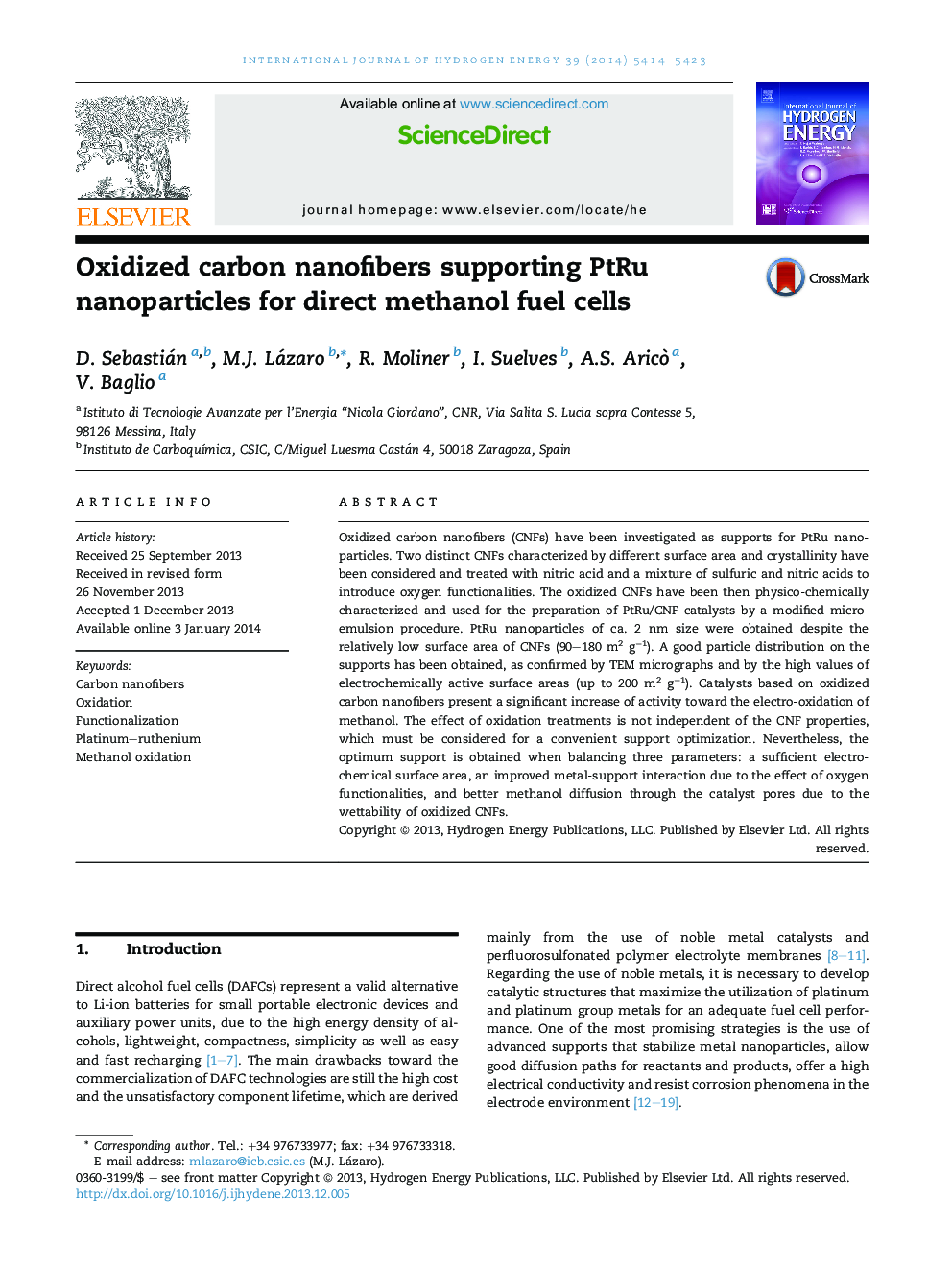| Article ID | Journal | Published Year | Pages | File Type |
|---|---|---|---|---|
| 1281314 | International Journal of Hydrogen Energy | 2014 | 10 Pages |
•Oxidized CNFs are investigated as supports for PtRu nanoparticles.•PtRu nanoparticles of 2 nm size are obtained by a modified microemulsion procedure.•Catalysts based on oxidized CNF present a significant enhancement of MOR activity.•We report high ECSA, O-groups effect on PtRu–C interaction and improved wettability.
Oxidized carbon nanofibers (CNFs) have been investigated as supports for PtRu nanoparticles. Two distinct CNFs characterized by different surface area and crystallinity have been considered and treated with nitric acid and a mixture of sulfuric and nitric acids to introduce oxygen functionalities. The oxidized CNFs have been then physico-chemically characterized and used for the preparation of PtRu/CNF catalysts by a modified microemulsion procedure. PtRu nanoparticles of ca. 2 nm size were obtained despite the relatively low surface area of CNFs (90–180 m2 g−1). A good particle distribution on the supports has been obtained, as confirmed by TEM micrographs and by the high values of electrochemically active surface areas (up to 200 m2 g−1). Catalysts based on oxidized carbon nanofibers present a significant increase of activity toward the electro-oxidation of methanol. The effect of oxidation treatments is not independent of the CNF properties, which must be considered for a convenient support optimization. Nevertheless, the optimum support is obtained when balancing three parameters: a sufficient electrochemical surface area, an improved metal-support interaction due to the effect of oxygen functionalities, and better methanol diffusion through the catalyst pores due to the wettability of oxidized CNFs.
